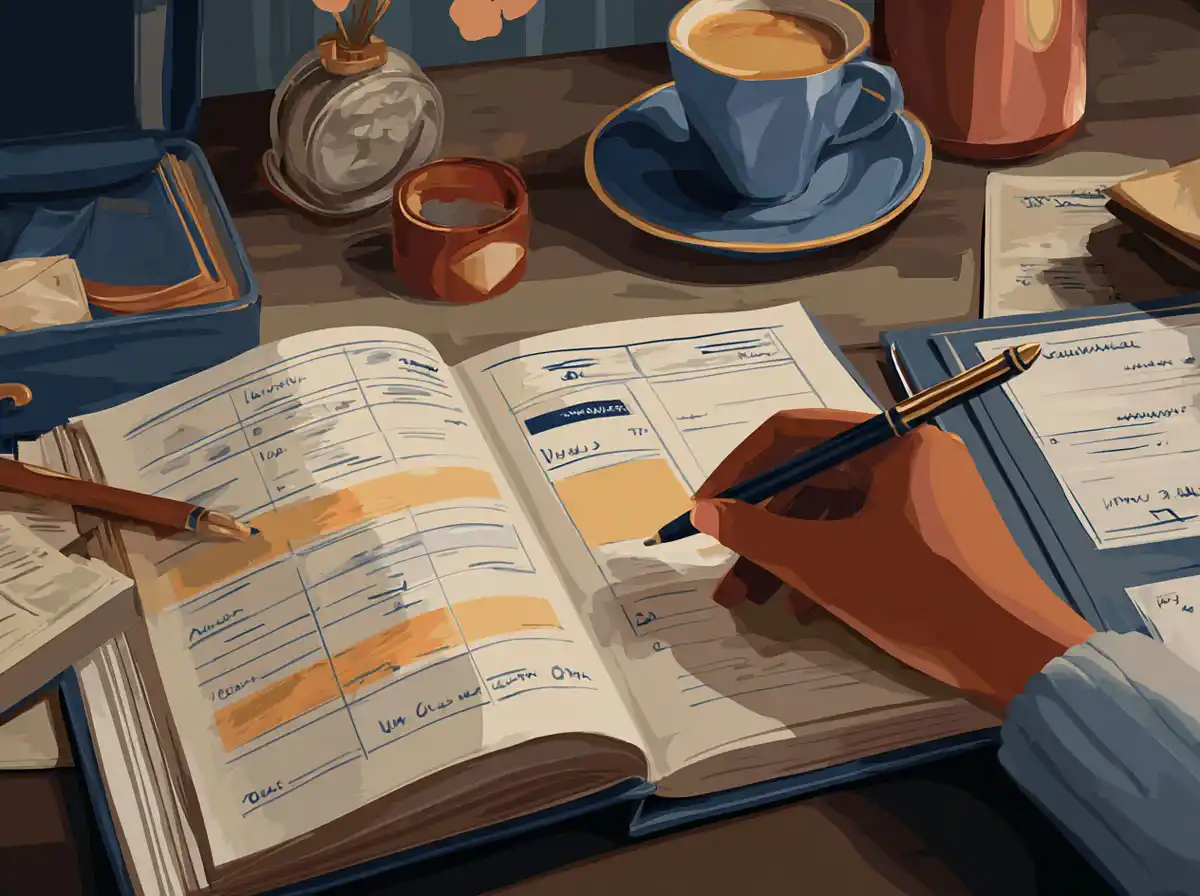Understanding the Polish Future Tense
The polish future tense is a vital grammatical construct used to describe actions that will happen in the future. Unlike English, which primarily relies on auxiliary verbs like “will” or “going to,” Polish employs two main ways to express the future tense: the synthetic future and the analytic future. Understanding these methods is crucial for mastering Polish and communicating effectively.
The Two Forms of Polish Future Tense
Polish verbs can be either perfective or imperfective, and this distinction influences how the future tense is formed:
- Perfective Verbs: These verbs inherently carry a future meaning in their present tense form. Therefore, the present tense of perfective verbs functions as the future tense.
- Imperfective Verbs: Imperfective verbs require the use of an auxiliary verb (usually “być” – to be) plus the infinitive or the past participle to express the future tense.
Formation of the Polish Future Tense
Future Tense with Perfective Verbs
Perfective verbs do not have a present tense that describes ongoing actions. Instead, their present tense forms indicate future actions. For example:
- napiszę – I will write
- zrobię – I will do/make
This simplifies future tense formation for perfective verbs, as the conjugated present tense form inherently expresses the future.
Future Tense with Imperfective Verbs
For imperfective verbs, the future tense is constructed analytically using the auxiliary verb “być” in the future tense and the main verb in either the infinitive or past participle form.
The formula is:
future form of być + infinitive/past participle of the main verb
For example, with the verb “czytać” (to read):
- Ja będę czytać – I will be reading
- Ty będziesz czytać – You will be reading
- On/Ona będzie czytać – He/She will be reading
Alternatively, the past participle can be used:
- Ja będę czytał (male) / czytała (female)
- Ty będziesz czytał / czytała
Both forms are correct, but the infinitive form is more commonly used in spoken Polish.
Conjugation of the Auxiliary Verb “Być” in the Future Tense
The future tense of “być” is irregular and must be memorized. It conjugates as follows:
- Ja będę – I will be
- Ty będziesz – You will be (singular informal)
- On/Ona/Ono będzie – He/She/It will be
- My będziemy – We will be
- Wy będziecie – You will be (plural)
- Oni/One będą – They will be (masculine/feminine)
Usage of the Polish Future Tense
The polish future tense serves multiple functions beyond simply indicating future actions. Understanding these uses will improve comprehension and expression in Polish.
Expressing Planned Actions
The most straightforward use is to talk about planned or intended actions:
- Jutro napiszę raport. – I will write the report tomorrow.
- W weekend będziemy oglądać film. – We will be watching a movie on the weekend.
Making Predictions
The future tense is also used to make predictions about the future:
- Będzie padać jutro. – It will rain tomorrow.
- On zdobędzie nagrodę. – He will win the prize.
Expressing Probability or Assumptions
Sometimes, the future tense conveys assumptions or probabilities regarding the present or future:
- To będzie Jan. – That is probably Jan.
- Oni będą w domu. – They are probably at home.
Talking About Repeated or Continuous Actions
Using the imperfective verbs in the future tense can express repeated or ongoing future actions:
- Będę pracować nad tym projektem przez cały tydzień. – I will be working on this project all week.
Common Polish Future Tense Verbs and Examples
Learning common verbs and their future tense forms can significantly aid in fluency.
| Verb (Infinitive) | Aspect | Future Tense Example | English Translation |
|---|---|---|---|
| pisać | Imperfective | Ja będę pisać | I will be writing |
| napisać | Perfective | Ja napiszę | I will write (completed action) |
| robić | Imperfective | Ty będziesz robić | You will be doing |
| zrobić | Perfective | Ty zrobisz | You will do/make |
| czytać | Imperfective | On będzie czytać | He will be reading |
| przeczytać | Perfective | On przeczyta | He will read (complete) |
Tips for Learning and Using the Polish Future Tense
Practice With Both Verb Aspects
Since the polish future tense depends heavily on verb aspect, practice both perfective and imperfective verbs separately. Recognizing and using the correct aspect is crucial to mastering the future tense.
Use Talkpal for Interactive Learning
Talkpal offers an excellent platform for practicing the polish future tense through interactive dialogues, quizzes, and native speaker interactions. The app’s contextual learning helps solidify your understanding and usage in real-life scenarios.
Memorize “Być” Conjugations
Because “być” is irregular, spend extra time memorizing its future tense forms. This will make constructing the analytic future tense much easier.
Listen and Repeat
Engage with Polish media such as podcasts, videos, or songs that use future tense verbs. Repetition and listening comprehension are key strategies for internalizing tense usage.
Practice Speaking with Native Speakers
Using platforms like Talkpal to converse with native Polish speakers allows immediate feedback and helps overcome hesitation in using the future tense naturally.
Common Mistakes to Avoid When Using the Polish Future Tense
- Mixing up verb aspects: Using perfective verbs in the present tense to express ongoing actions is incorrect.
- Incorrect auxiliary verb forms: Using the wrong conjugation of “być” leads to grammatical errors.
- Omitting the auxiliary verb: When forming the future tense with imperfective verbs, forgetting “być” is a common mistake










